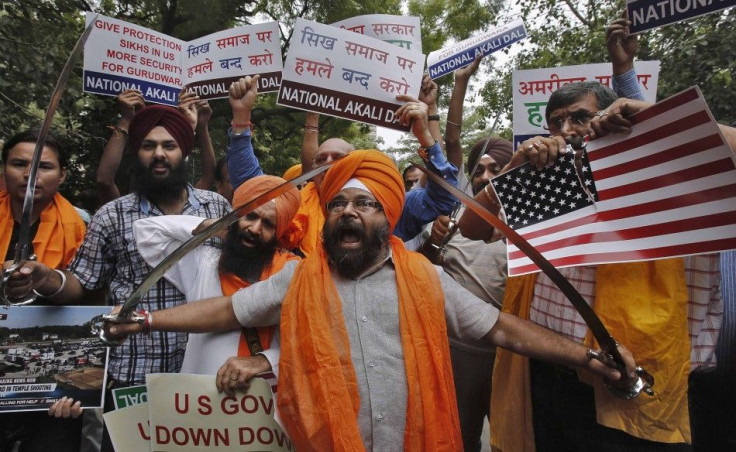Sikh Temple Shooting: Again Mistaken For Muslims?

The massacre of six Sikhs at a temple in Wisconsin on Sunday would appear to be the manifestations of that community’s worst fears in the United States.
While the identity of the gunman – who himself was killed by police – has been limited to a “white male” and his motives remain unknown, Sikhs were targeted in the wake of the 9-11 attacks almost eleven years ago.
With their beards and turbans, Sikhs were associated visually in the minds of many Americans and others westerners with Osama Bin Laden, the former al-Qaeda terror chief who masterminded the devastating attacks on the World Trade Center and Pentagon.
This case of mistaken identity led to some tragic results – including the murder of at least one Sikh (an Arizona gas station owner named Balbir Singh Sodhi) and countless physical assaults on countless others in the aftermath of 9-11.
Such incidents appeared to have died down over the years – however, if the shooting spree in Oak Creek, Wisconsin, was indeed a form of ”delayed retaliation” for 9-11, then that would suggest hostility towards South Asians and Middle Easterners has never really gone away.
"This is something we have been fearing since 9/11, that this kind of incident will take place," Rajwant Singh, chairman of the Sikh Council on Religion and Education in Washington DC told the Associated Press.
"It was a matter of time because there's so much ignorance and people confuse us [as] being members of Taliban or belonging to [Osama] bin Laden.”
Valarie Kaur, a U.S. based filmmaker of Punjabi Sikh descent told AP: "That turban has tragically marked us as automatically suspect, perpetually foreign and potentially terrorists."
Sikhs, who number some 30 million around the world, belong to a faith that was founded in northern India over 500 years ago. Adopting certain elements of Islam and Hinduism, Sikhism is monotheistic and places special emphasis on equality of mankind. However, Sikhs are also a warrior race who have played a prominent role in India’s military, as well as the British armed forces over the centuries.
Sikh men are required to follow the so-called ‘five K’s’: kesh (uncut hair); kara (steel bracelet); Kirpan (a sword); Kachera (a kind of short trouser) and Kangha (a small comb).
Male Sikhs are required to wear a turban to cover their hair, while growing beards and moustaches. (Incidentally, Osama’s turban looked nothing like those worn by Sikhs).
Based in the Punjab of India, large numbers of Sikhs have migrated to the United Kingdom, Canada, Australia as well as the U.S.
The current Prime Minister of India, Manmohan Singh, is himself a Sikh. Within India, Sikhs are generally prosperous and politically powerful, while a minority have long sought an independent homeland which they call Khalistan.
© Copyright IBTimes 2024. All rights reserved.











